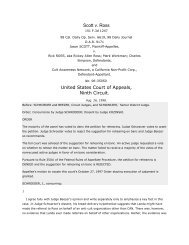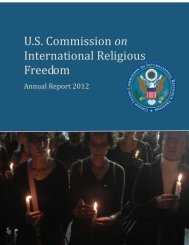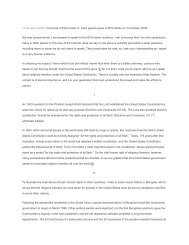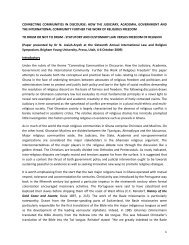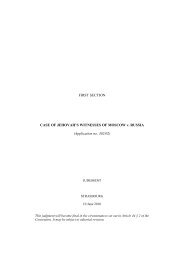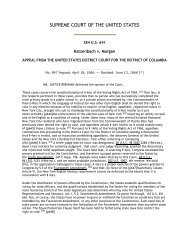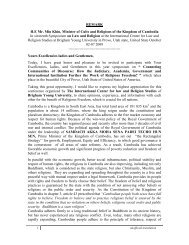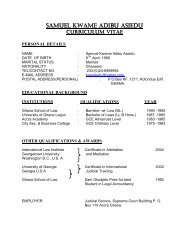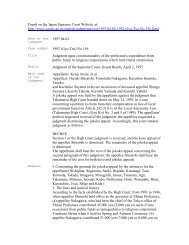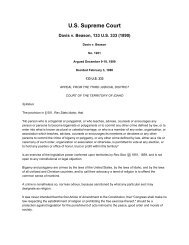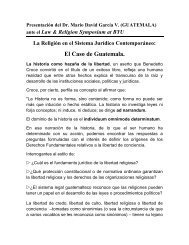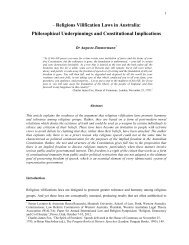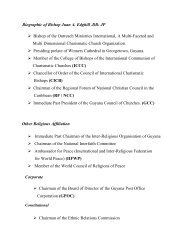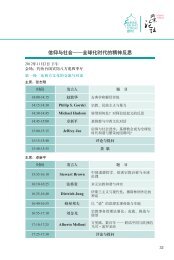Ruling (.pdf) - International Center for Law and Religion Studies
Ruling (.pdf) - International Center for Law and Religion Studies
Ruling (.pdf) - International Center for Law and Religion Studies
Create successful ePaper yourself
Turn your PDF publications into a flip-book with our unique Google optimized e-Paper software.
ancestry, place of origin, colour, ethnic origin, citizenship, creed,sex, sexual orientation, age, record of offences, marital status,family status or disability.[90] The effect of section 24(1)(a) is to deem certain conduct that would otherwisebe a violation of the Code, not to be an infringement in special, limited circumstances. Itis an exception to the general rule that no employer may refuse to hire, or givepreference in hiring, on the basis of one of the prohibited grounds set out in section 5(1)of the Code.[91] The Commission <strong>and</strong> Ms. Heintz argued that, because section 24(1)(a) is anexception, it ought to be read narrowly <strong>and</strong> applied restrictively. (See: Zurich Insurancev. Ontario (Human Rights Commission), [1992] 2 S.C.R. 321). In Brossard, supra, theSupreme Court of Canada comments on both the purpose <strong>and</strong> approach to interpretingspecial employment provisions such as section 24(1)(a). In Brossard the Court wasdealing with section 20 of the Quebec Charter of Rights <strong>and</strong> Freedoms, a similar(though not identical) provision to section 24(1)(a). Mr. Justice Beetz, speaking <strong>for</strong> theCourt, found such sections were:2008 HRTO 22 (CanLII)(…) designed … to allow certain non-profit institutions to createdistinctions, exclusions or preferences which would otherwiseviolate the Charter if those distinctions, exclusions orpreferences are justified by the charitable, philanthropic,religious, political or educational nature of the institution inquestion. In this sense, s. 20 confers rights upon certain groups.In my view, this branch of s. 20 was designed to promote thefundamental right of individuals to freely associate in groups <strong>for</strong>the purpose of expressing particular views or engaging inparticular pursuits. Its effect is to establish the primacy of therights of the group over the rights of the individual in specifiedcircumstances. Rather than adopting a liberal or a restrictiveinterpretation of the second branch, I shall there<strong>for</strong>e endeavourto give the expressions "non-profit institution" <strong>and</strong> "politicalnature" their ordinary meaning, using the traditional rules ofstatutory interpretation. (Brossard, para. 100)[92] The Court went on to note that the special employment provisions differconsiderably from province to province <strong>and</strong> the scope of the “group rights” varies.(Brossard, para. 132). It is useful to examine these differences in relation to s. 24(1)(a).24



